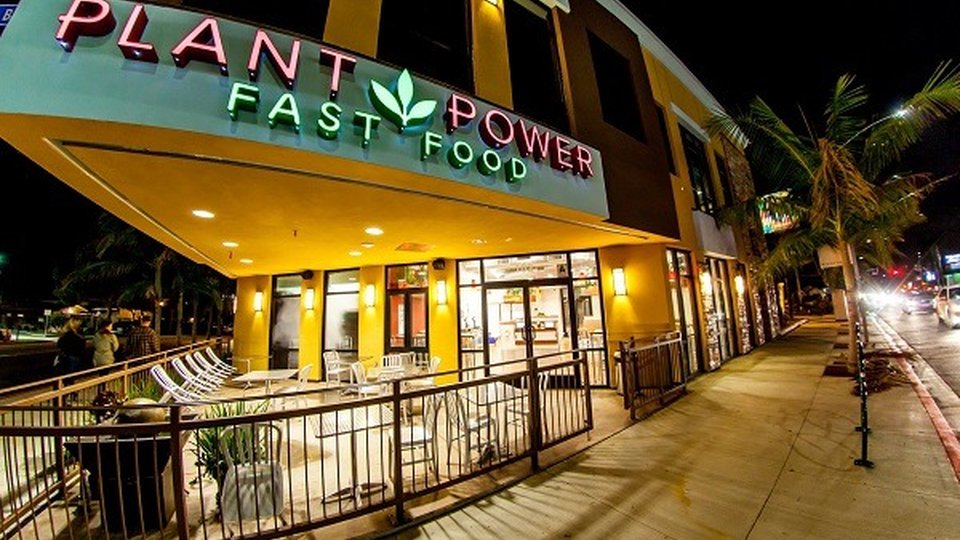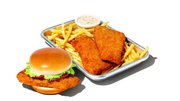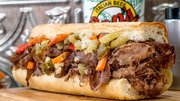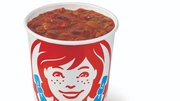Food & Beverage
Plant Power Fast Food: Mission-rooted and ready to grow
Plant Power Fast Food is not a restaurant, says its co-CEOs, but a mission.

June 15, 2021 by S.A. Whitehead — Food Editor, Net World Media Group
Stop for a minute, and ask yourself how many solely plant-based fast food concepts you can name? Not many, huh? In fact, depending on where you live in the U.S., there might not be any. That is — at least in part — why the expansion plans of one California-born plant-based QSR — Plant Power Fast Food — may just bear fruit. After all, there is a pretty big niche to fill in many markets for a true fast food concept that specializes in plant-based fare.
Having few competitors, however, isn't the only thing that signals prospective growth for the brand; its numbers look pretty good, too.
Plant Power's top-line retail net sales have grown from $1.1 million in 2016 to $9.5 million in 2019, with 2020 closing at $14.5 million. Those numbers and other data have the brand's leadership team — President Mitch Wallis, COO Zach Vouga and Co-Chief Marketing and Communications Officer Jeffrey Harris — forecasting it to hit $25 million annually by the end of next year.
The trio of leaders, who not only co-founded Plant Power but also share the CEO title, recently spoke to QSRweb to help paint a picture of plant-based life in the fast lane.
"We believe it's possible to change the world, one burger at a time by serving burgers that use 99% less water, 93% less land, and 46% less energy than their animal-based counterparts, Vouga said in a recent interview. "All of our guests are a part of achieving the mission each day they patronize our establishments — they're voting with their dollar for the type of world they want to live in."
 |
| Plant Power Co-CEOs (from left to right) Jeffrey Harris, Zach Vouga and Mitch Wallis.(Provided) |
So who exactly is the customer drawn to the brand's menu of burgers, fries, wraps, salads and shakes? According to Harris, the people who love the brand are probably not the people you're envisioning as a plant-based fast food joint's patrons.
"While we certainly have a solid fan base of vegetarians and vegans who are thrilled to be able to enjoy their traditional fast-food favorites, the majority of our customers are regular fast-food fans who, for a variety of reasons, are cutting back on their consumption of meat and dairy," Harris said in an interview. "Don't expect to find a bunch of 'vegan hippies' or alternative types when you walk into a plant-power, although, of course, they're welcome. You'll see the same variety of people that you'd see at any other fast-food chain."
Still, many restaurateurs reading this may be wondering if Plant Power really is a true quick-service (a.k.a. fast food) concept, rather than what many see as the tonier limited-service category of fast casual. And to that question, Vouga did not equivocate: Plant Power is firmly, unapologetically a fast food brand.
"For decades, fast food was a darling concept and an important asset in our ever-fast-moving world," Vouga said. "Then in the 2000s, fast food's image took a big hit as consumers demanded transparency and further understood what really went into how some of the food was produced.
"From the onset, we fell in love with the idea of redefining the fast-food experience in order to affect the broadest audience with our cruelty-free and environmentally sustainable choices. We believe we are 'The Future of Fast Food,' and we're proud of where this category is headed."
Part of that optimism may be grounded in the fact that so many non-vegan and non-vegetarian diners are so dramatically making at least a partial shift to vegetable-based eating for any number of reasons from health to environmental priorities. In fact, just looking at the plant-based milk category alone, Wallis said that 39% of American households now have these types of products — like oat and soy milk — in their refrigerators, with an category average growth rate estimate of 18% each year.
He said that kind of popularity is opening the door for many consumers on other plant-based eating.
 |
| Plant Power burgers and fries are customer mainstays.(Provided) |
"Plant-based meat sales grew by 36% last year," Wallis said. "Overall plant-based food sales grew 2.5 times faster than total food sales. To me this means that plant-based products are here to stay especially considering that 98% of plant-based food buyers also purchase conventional meat so it's not just an increase in vegans or vegetarians but all segments of the population are buying more plant-based foods."
At this cornucopia of plant-based products called Plant Power, Vouga said they manufacture many of the products they serve at a centralized production facility.
"For the rest, we've crafted strategic partnerships with other mission-aligned organizations to co-create, unique and proprietary offerings that you can only find at Plant Power Fast Food," he said. "Most recently, we've solidified our relationship with Alpha Foods to co-develop and produce our line of custom 'chicken' patties, tenders, nuggets, and 'fish' fillets."
When it comes to Plant Power's extensive menu, the top seller is its plant-based "chicken" sandwich, which may also come as a wrap. Yes, chicken — even the plant-based kind — is just as popular here as anywhere in fast food, but isn't easy to create. In fact, Harris said that hitting on a truly poultry-based chicken taste in a plant-based product is enormously challenging. He calls it the toughest plant-based entree dish to create.
"We've put a tremendous amount of R&D in with our manufacturing partner to develop a proprietary 'chicken' protein that is available in both a grilled and fried format," Harris said. "Getting the taste and texture just right took a lot of time and effort, but we're thrilled with the outcome. … Our customers are always amazed how close the taste and texture of our plant-based 'chicken' offerings are to the real thing."
Other popular favorites at the brand are the Big Zac, a plant-based knock-off of the meatier thing at Plant Power's golden-arched competitor, as well as Plant Power's fries, which come loaded with plant-based American cheese, grilled onions and a secret sauce.
Plant-powering forward to new territory
The chain's growth strategy is underway and includes both corporate and franchise development, said Harris is seeking "like-minded mission-based franchisees" outside of the company's California home base, particularly in Nevada, the Pacific Northwest, Arizona and Texas.
Mitch Wallis added that the team was also interested in Utah, Colorado and New Mexico.
"Building a great business and a great team starts with the right intention," he said. "For us, we really do want to make a difference in the world by offering a plant-based, cruelty-free, healthier choice to millions of consumers who are hungry for change.
"Ultimately, our goal is to be a national chain, so that means building the team, manufacturing capabilities and supply chain required to continue to move eastward. No dream is too big to achieve with the right team and with unwavering perseverance — especially dreams which include improving the health and wellness of all living things."
About S.A. Whitehead
Pizza Marketplace and QSRweb editor Shelly Whitehead is a former newspaper and TV reporter with an affinity for telling stories about the people and innovative thinking behind great brands.
 ChatGPT
ChatGPT Grok
Grok Perplexity
Perplexity Claude
Claude









